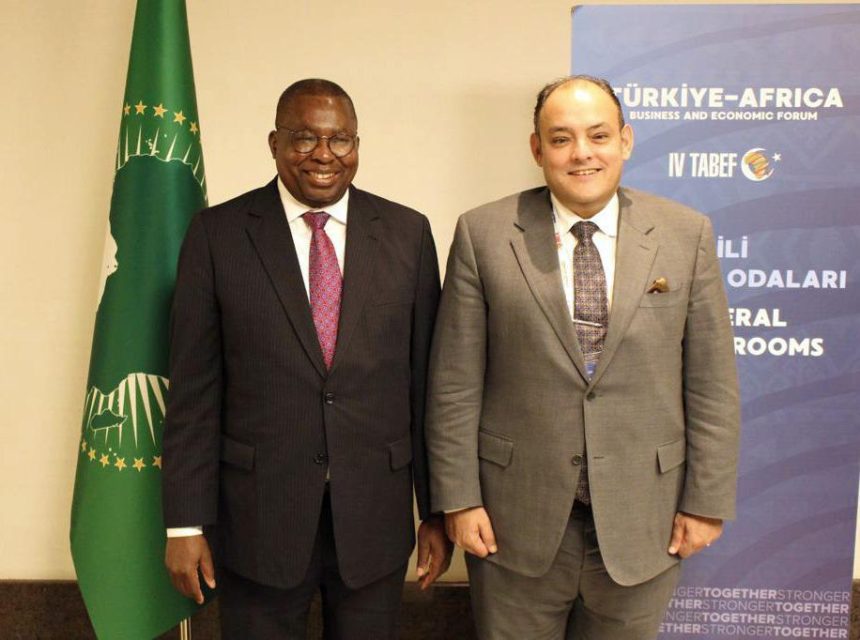In a strategic meeting held on the sidelines of the Turkiye-Africa Business and Economic Forum in Istanbul, Egypt’s Trade and Industry Minister, Ahmed Samir, and the African Union Commissioner for Economic Development, Trade, Tourism, Industry, and Minerals, Albert Muchanga, converged to discuss collaborative ventures between Egypt and the African Union. Amidst the backdrop of global challenges impacting African economies, the dialogue centered on fortifying their cooperation across various domains.
Fostering intra-African trade for global economic resilience
Samir reiterated Egypt’s unwavering dedication to the advancement of trade and industry across the African continent, especially in the face of global challenges that have been shaping the region’s economic landscape.
Egypt, in partnership with the Commission and the African Export-Import Bank (Afreximbank), is gearing up to host the Intra-African Trade Fair (IATF) in November. Samir underscored the significance of securing robust participation from African companies, organizations, and institutions to make the event a resounding success. IATF stands as a pivotal event, providing a vital platform for boosting intra-African trade and attracting increased global investments to the continent. This becomes especially pertinent in the context of the evolving global landscape, characterized by supply chain disruptions.
Samir highlighted the forthcoming fourth regular session of the Specialized Committee for Trade, Industry, Tourism, and Minerals, scheduled to convene in Congo-Brazzaville at the end of November. Emphasis was placed on the pivotal importance of implementing decisions within the realms of industrial and trade cooperation.
A unified African voice for economic and trade issues
In alignment with the broader objectives, Samir expressed that Egypt, along with other African nations, is resolute in leveraging their membership within the Committee to establish a united, formidable voice on international matters. Particular emphasis was placed on issues pertaining to economics and trade. This would encompass initiatives to reform the international financial system, augment Africa’s share in global trade, entice greater investments, and facilitate technology transfer to the African continent.
Driving integration and prosperity through key projects
Samir concluded by underlining the imperative need for concerted efforts aimed at expediting the implementation of protocols governing AfCFTA. Additionally, he emphasized the necessity to develop essential projects from the African Union’s agenda, including the Union’s basic commodities strategy, green mining strategy project, and e-commerce strategy. These projects are poised to play a pivotal role in bolstering African cooperation and integration, ultimately steering the continent towards enhanced economic prosperity.
For more regional business news, visit our dedicated archives.
